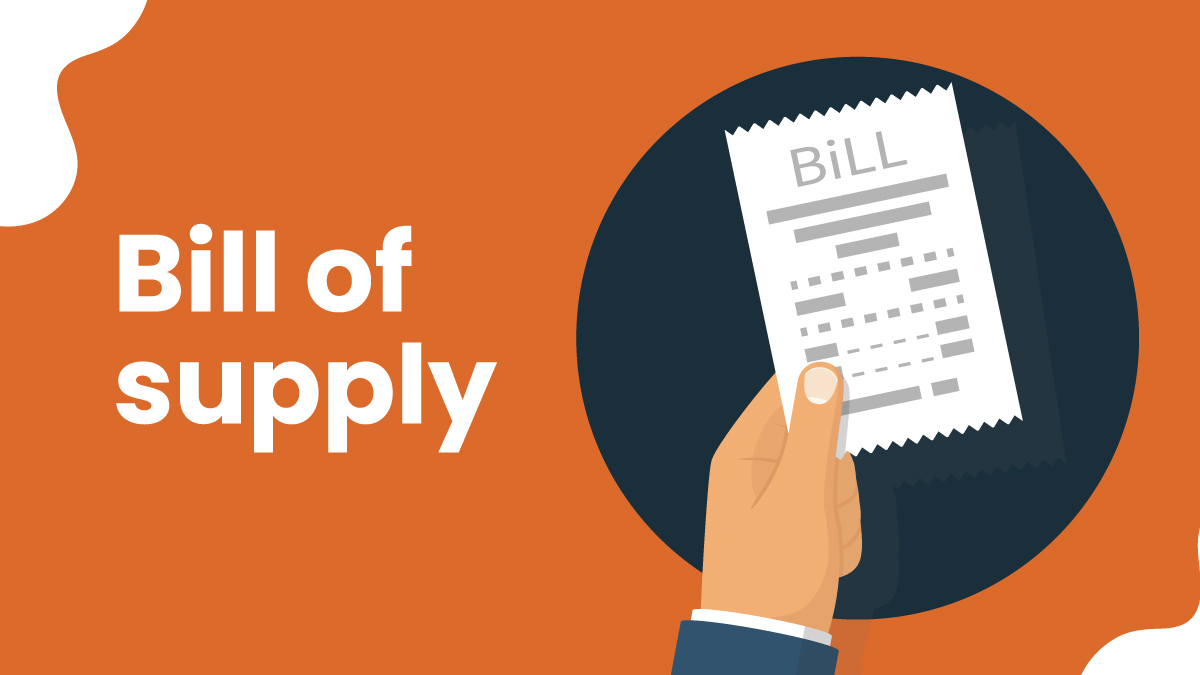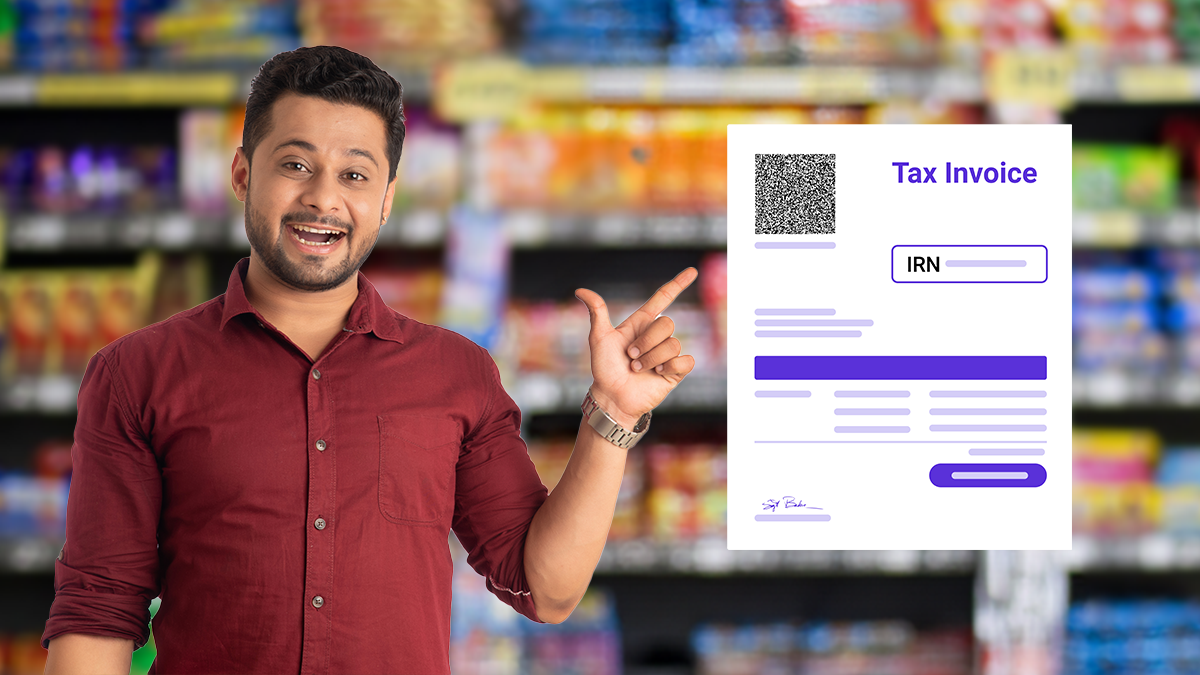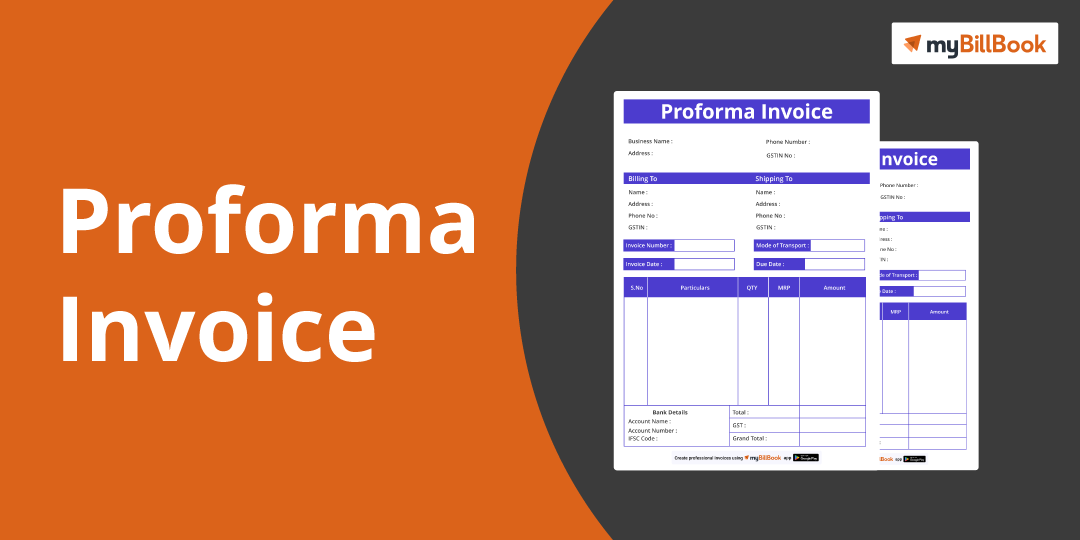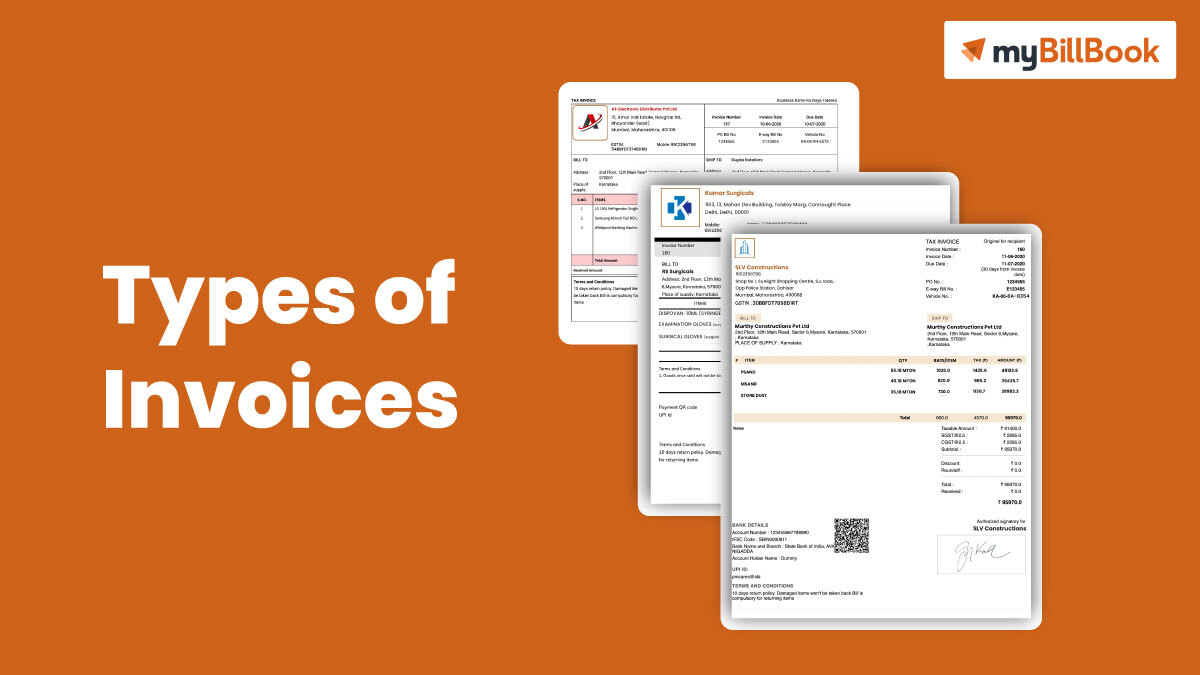What is a Bill of Supply?
A company that is GST-registered sends the purchaser a tax invoice. Such an invoice specifically states the GST rate applied to the sold goods and services.
Some businesses with GST registrations, however, are not permitted to add taxes to the invoices they issue. These merchants must issue a Bill of Supply. When GST is not applicable to a transaction or when GST is not to be recouped from clients, a Bill of Supply is provided.
Who should issue the Bill of Supply?
The registrants listed below should issue Bills of Supply:
- Composition Dealer
If you are a business whose sales are less than 1.5 million rupees, you can opt to pay taxes under the composition scheme. If you choose to pay taxes under the composition scheme, you will have to pay the tax yourself. You cannot ask your customers to pay the tax for you. You will not be allowed to charge the tax in your invoice. Instead, you will have to give a bill of supply.
- Exporters
The GST component of an exporter’s invoice is not necessary. This is because supplies for export are not taxed. Therefore, a Bill of Supply may be provided in place of a tax invoice when exporting products.
In their Bill of Supply, the dealer must include the following information: “Supply meant for export on payment of IGST” and “Supply meant for export under bond or letter of undertaking without payment of IGST.”
Returning to the basics of what invoicing involves can help explain why this is the case.
- Exempted Goods Supplier
A Bill of Supply must be issued by a registered dealer whenever exempt items or services are supplied. For instance, a registered taxpayer must submit a Bill of Supply rather than a tax invoice when supplying raw agricultural products.
Contents of Bill of Supply
A Bill of Supply should include the following information:
- The supplier’s name, address, and GSTIN
- Bill of Supply reference (Each Bill of Supply must have a distinct number for that financial year that is no longer than 16 characters long and generated consecutively)
- Issued on and If the receiver is registered, then mention name, address, and GSTIN.
- The Bill of Supply also contains accounting codes for services or HSN code for goods.
Based on the amount of revenue in the previous financial year, the minimum number of digits is as follows:
| Turnover details | HSN details |
| < 1.5 cr | No HSN code is necessary. |
| Between 1.5 to 5 cr | A two-digit HSN code |
| > 5 cr | A 4-digit HSN code is required |
- Product/service details
- The value of the products or services after adjusting for any discounts or reductions
- Digital or manual signature of the vendor
Can a registered person issue a bill of supply?
A registered person must issue a bill of supply in place of an invoice if they only deal in exempted supplies or use the composition scheme (composition dealer).
What is the difference between invoice and bill of supply?
For all types of taxable sales, whether they are local or central, a Tax Invoice is used; conversely, a Bill of Supply is used for all types of exempt sales or sales done by composition dealers.







